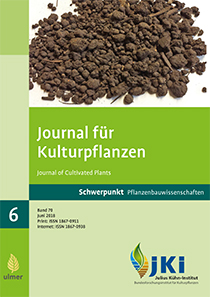Composted biowaste digestates as fertilizers: effects on soil chemistry and plant development in a three-year field trial
DOI:
https://doi.org/10.5073/JfK.2018.06.03Keywords:
Biowaste, heavy metals, digestates, pelletingAbstract
In a three-year field trial, composted digestates from biowaste were tested for their potential for plant cultivation and their effect on soil chemical parameters. In addition, the preparation processes of pelleting and agglomeration and their effect on the digestate properties were investigated. It has been found that the immediate fertilising effect of the products is low due to the low nitrogen availability. However, there was a significant increase in carbon content in the soil, suggesting a relevant humus reproduction potential from such digestate products. Agglomerate formation and pelleting appear to further slow the mineralization of the products, negatively affecting nutrient release but positively impacting carbon sequencing. Particularly problematic in biowaste are high levels of heavy metals and other impurities. The statutory limits were exceeded in 50% of the batches examined, but only max. 7% of the discharged heavy metals were recovered in the aboveground plant material.
Downloads
Published
Issue
Section
License
The content of the journal is licensed under the Creative Commons Attribution 4.0 License. Any user is free to share and adapt (remix, transform, build upon) the content as long as the original publication is attributed (authors, title, year, journal, issue, pages).
The copyright of the published work remains with the authors. The authors grant the Journal of Cultivated Plants, the Julius Kühn-Institut and the OpenAgrar repository the non-exclusive right to distribute and exploit the work.







